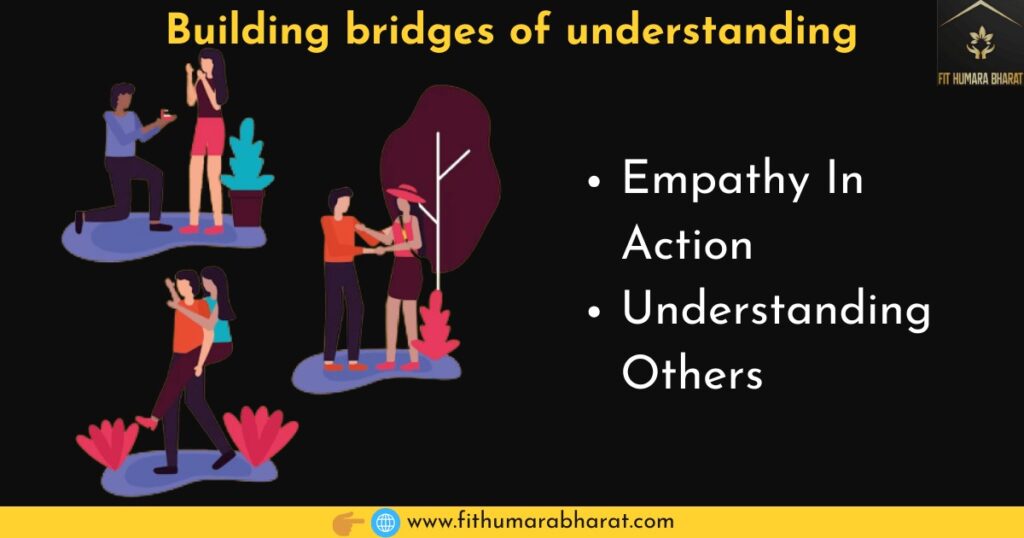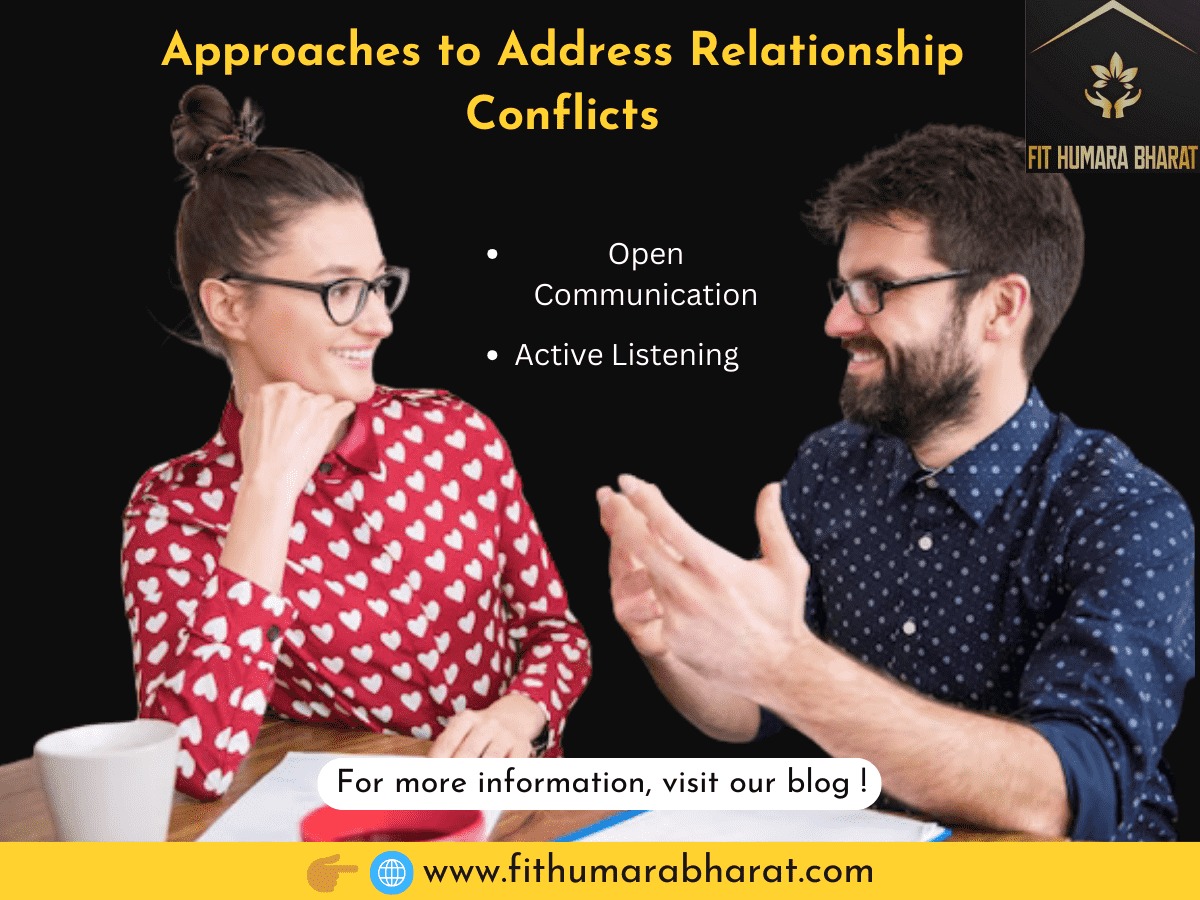Conflict, whether in a romantic, familial, or professional relationship, is an inherent aspect of human interaction. Paradoxically, conflicts can be viewed as a positive sign in a relationship since they demonstrate that both parties are willing to express their opinions and collaborate to resolve differences. Nevertheless, the way in which conflicts are managed plays a pivotal role in the fate of a relationship. Unresolved conflicts can fester and undermine the foundation of a relationship, whereas constructive conflict resolution can reinforce the connection between individuals.
Facilitating Effective Communication:
Effective communication is the bedrock of conflict resolution in any relationship. Conflicts often arise from misunderstandings, unexpressed feelings, or misinterpretations. To address conflicts constructively, both parties must be open and honest in their communication. Here are some suggestions for effective communication during conflicts:

- Active Listening: In conflict situations, it is crucial that each party actively listens to the other without interrupting. This entails giving undivided attention to the other person rather than waiting for an opportunity to speak. Reflect on what the other person is expressing and ask for clarification if necessary.
- Employing “I” Statements: Instead of making accusatory statements, utilize “I” statements to convey your feelings and perspective. For example, say, “I feel hurt when you ignore my messages,” as opposed to, “You always ignore me.”
- Steering Clear of Blame and Judgment: Assigning blame and passing judgment can escalate conflicts. Instead, concentrate on the specific issue at hand and articulate how it affects you. For instance, say, “I feel frustrated when you leave dirty dishes in the sink,” rather than resorting to accusations like, “You’re so lazy and messy.”
- Maintaining Composure: It is imperative to keep emotions in check during a conflict. When both parties remain calm, it is easier to engage in a rational discussion and reach a resolution. If the conversation becomes too heated, it is acceptable to take a break and return to it when both parties are in a more composed state.
Cultivating Empathy and Perspective-Taking:
Empathy plays a pivotal role in conflict resolution. It involves comprehending and sharing the feelings of the other person. Attempt to place yourself in their shoes and view the situation from their standpoint. This can enhance your understanding of their motivations and emotions, making it easier to discover common ground.
Respecting Boundaries:
Acknowledging and respecting each other’s boundaries and individuality are fundamental to constructive conflict resolution. It is important to recognize that each individual in a relationship is a distinct entity with their own beliefs, needs, and values. Avoid attempting to alter the other person or impose your own views on them. Instead, seek compromises that honor the boundaries of both parties.
Pursuing Compromise:
Compromise frequently serves as the linchpin for resolving conflicts. It is improbable that both parties will achieve precisely what they desire, making finding middle ground essential. A willingness to compromise signifies a commitment to the relationship and a shared desire to collaborate as a team.
Minding Timing and Setting:
Consider the timing and setting of your discussions. A moment when both parties are calm and not preoccupied with other concerns. A private and comfortable environment can facilitate productive communication.
Articulating Feelings and Needs:
During conflicts, it is crucial to clearly articulate your feelings and needs. Doing so allows the other person to comprehend your perspective and work together to identify solutions. Bottling up your emotions or assuming that the other person can read your mind can lead to unresolved conflicts.
Adopting a Solution-Focused Approach:
Rather than fixating on past issues or pointing fingers, concentrate on discovering solutions for the current conflict. Discuss actions that can prevent similar conflicts in the future. A solution-focused approach proves more constructive than revisiting past grievances.
Taking Breaks When Necessary:
At times, conflicts can become overwhelming, leading to heightened emotions. In such situations, taking a break from the conversation is entirely acceptable. Temporarily stepping away to cool off and gather your thoughts can lead to a more productive discussion upon your return.
Leveraging Non-Verbal Communication:
Non-verbal cues, such as body language and facial expressions, convey a wealth of information during conflicts. Be conscious of your own non-verbal communication and pay attention to the cues exhibited by the other person. A reassuring touch or maintaining eye contact can convey understanding and support.
Extending Apologies and Forgiveness:
Apologies hold the potential to significantly contribute to conflict resolution. If you have erred, acknowledge it and apologize sincerely. Simultaneously, be open to receiving apologies from the other person and be willing to forgive. Clinging to grudges can detrimentally affect a relationship in the long run.
Contemplating Professional Assistance:
In certain instances, conflicts may be deeply entrenched or involve intricate issues that are challenging to resolve independently. Seeking the guidance of a qualified therapist or counselor can offer a safe and neutral space for addressing these conflicts and developing enhanced communication and conflict resolution skills.
Embracing Continuous Improvement:
Conflict resolution is a skill that can be refined and enhanced over time. Both individuals in a relationship can collaboratively learn from each conflict and apply these lessons to future situations. This ongoing process of self-improvement can lead to a more resilient and thriving relationship.
Valuing Differences:
It is important to recognize that differences in opinions, preferences, and values are an inherent part of any relationship. Rather than viewing these differences as adversarial, consider them as opportunities for learning, growth, and broadening your own perspective. Embracing diversity within a relationship can foster a deeper understanding and connection.
Conflicts are an intrinsic facet of any relationship, and their management significantly impacts the health and longevity of that relationship. By prioritizing effective communication, empathy, respect, and compromise, individuals can navigate conflicts constructively. It is imperative to understand that conflicts can offer opportunities for personal growth and understanding, ultimately reinforcing the bond between individuals in a relationship. With patience, practice, and a commitment to working through conflicts, it is possible to nurture a resilient and flourishing relationship.
Thank You 
- Conflict Management: Difficult Conversations with Difficult People
- Exploring the business of urology: Conflict resolution and negotiation
- Conflict management: a primer for doctors in training
- Conflicts in operating room: Focus on causes and resolution
- More than a method: trusting relationships, productive tensions, and two-way learning as mechanisms of authentic co-production



 Sources
Sources